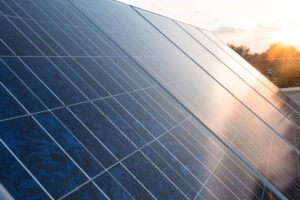As Nigeria faces escalating challenges in its energy sector, more Nigerians are adopting solar panels and inverters as a dependable and sustainable solution. This article explains the 3 reasons driving this trend, emphasizing the effects of increasing electricity tariffs, governmental policies, and the initiatives of renewable energy firms such as Uwana in rendering solar energy accessible and economical for everyone.
1. Escalating Electricity Tariffs and Economic Pressures:
In recent weeks, Nigeria has witnessed a steady rise in electricity tariffs, placing a significant financial burden on consumers and businesses alike. This surge in tariffs, attributed to factors such as price fluctuations and infrastructure maintenance costs, has fueled the demand for alternative energy solutions. As Nigeria’s Minister of Power Adebayo Adelabu, was quoted to have stated, “All our gas pipelines are bad. There has been vandalisation of the gas pipelines; there will be a lack of adequate pressure on the gas pipelines where we need compressors and boosters,”.
In the same vein, there were mixed reactions recorded on micro-blogging website, X, over the week.
https://x.com/Femi_Gbaro/status/1776713658166345740
https://x.com/Saeed__Manager/status/1776184643705770321
https://x.com/nhayoomee_/status/1775961283969380742
2. Government and Policy Initiatives:
The Nigerian government has recognized the potential of solar energy to address the country’s energy challenges and has implemented various policies.
3. Accessibility and affordability through financing Plans:
Renewable energy companies like Uwana are playing a crucial role in making solar power accessible and affordable to all Nigerians. By offering flexible financing plans and payment options, Uwana is empowering individuals and businesses to invest in solar energy solutions without upfront capital investment. This approach not only lowers the financial barrier to entry but also enables consumers to reap the long-term benefits of solar energy while contributing to a cleaner and more sustainable future.
As Nigeria strives to address its energy challenges and transition towards a more sustainable energy landscape, the adoption of solar panels and inverters represents a significant step forward. With rising electricity tariffs, environmental concerns, and government support driving the demand for solar energy, Nigerians are betting on solar power as a reliable, cost-effective, and environmentally friendly solution. Through the efforts of renewable energy companies like Uwana and the commitment of policymakers and stakeholders, solar energy has the potential to power Nigeria’s future.